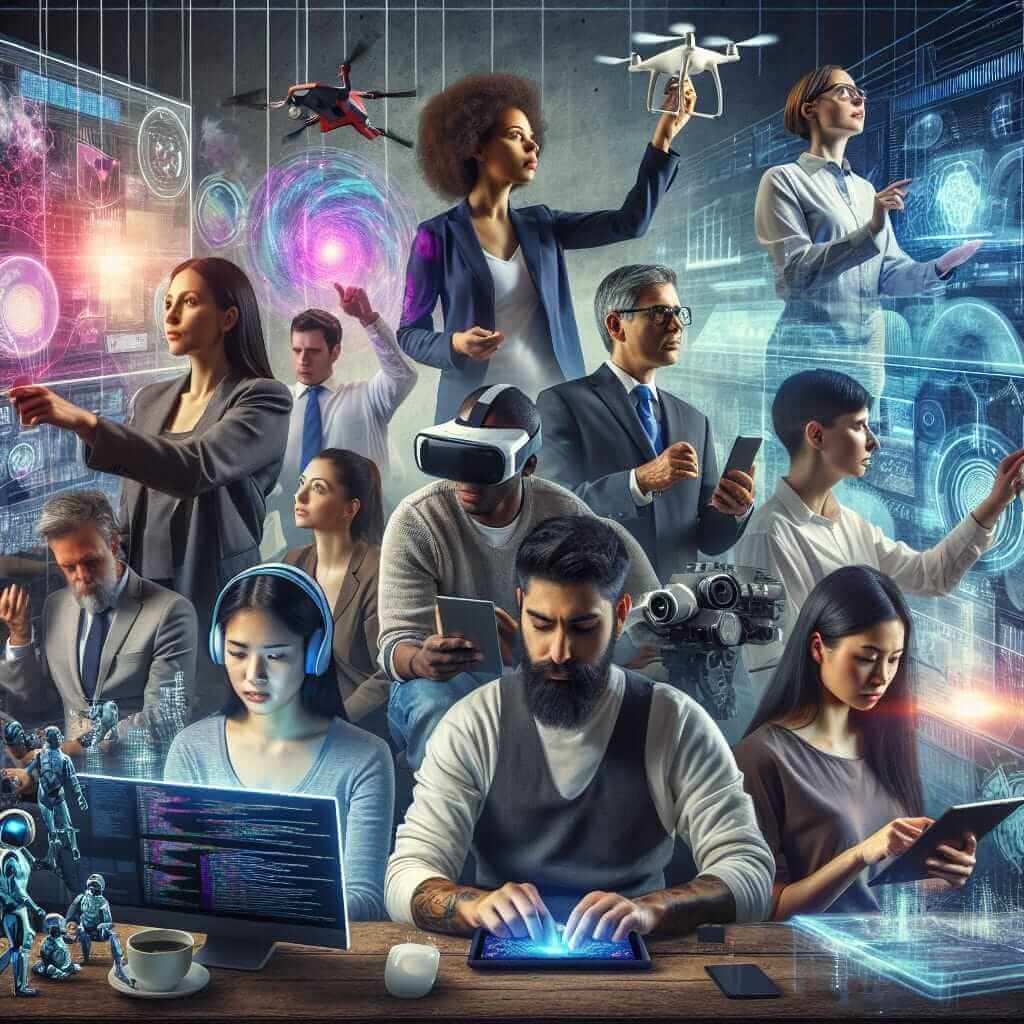The IELTS Reading section is known for its diversity in topics and complexity. One recurring and contemporary theme is the “Economic effects of digital transformation on employment”. This subject remains pertinent given the rapid technological advancements occurring globally and its significant impact on the job market. With numerous articles, debates, and studies focusing on this subject, it is likely to appear in the IELTS Reading section. This guide will provide a comprehensive sample reading passage, questions, and thorough answers to aid in your preparation.
Reading Passage: Economic Effects of Digital Transformation on Employment
The Core of Digital Transformation
Digital transformation refers to the integration of digital technology into all areas of a business, fundamentally changing how businesses operate and deliver value to customers. It is also a cultural change that requires organizations to continually challenge the status quo, experiment, and get comfortable with failure.
Impacts on Employment Structures
Digital transformation has led to significant shifts in employment structures. Traditional roles are evolving, new job profiles are emerging, and certain jobs are becoming obsolete. For instance, automation and artificial intelligence (AI) are taking over repetitive and routine tasks, reducing the need for human input in those areas. Conversely, there is a growing demand for digital skills such as data analysis, cybersecurity, digital marketing, and software development.
Case Study: The Gig Economy
One notable result of digital transformation is the rise of the gig economy. Platforms like Uber, Upwork, and Airbnb illustrate the shift from traditional full-time jobs to freelance and project-based work. This trend is reshaping the employment landscape, providing flexibility for workers but also posing challenges regarding job security and worker benefits.
Upskilling and Reskilling
To remain relevant in the digital age, the workforce must undergo continuous upskilling and reskilling. Governments, educational institutions, and corporations are increasingly recognizing the need for training programs to equip workers with the necessary skills to thrive in a digitally transformed economy. Online learning platforms and coding bootcamps are among the many avenues for acquiring these new competencies.
Economic Disparities
While digital transformation offers numerous opportunities, it also exacerbates economic disparities. High-income individuals with access to education and digital tools can capitalize on new opportunities, while those without such access may find themselves at a disadvantage. Addressing these disparities is crucial for ensuring an inclusive economic growth.
 Digital transformation and employment
Digital transformation and employment
Reading Questions
Multiple Choice
-
What is the primary definition of digital transformation?
A. The replacement of human jobs by machines.
B. The fundamental change in business operations due to digital technology.
C. The dominance of AI in all sectors. -
What is a significant effect of automation and AI on jobs?
A. Increase in repetitive tasks for humans.
B. Creation of more traditional roles.
C. Reduction in the need for human input in routine tasks.
True/False/Not Given
- Digital transformation only affects the technology sector. (True/False/Not Given)
- The gig economy offers job security and worker benefits comparable to traditional jobs. (True/False/Not Given)
Summary Completion
Complete the summary using the words from the box below:
Digital transformation has (1) __ the employment landscape by evolving traditional roles and creating new profiles. Automation and AI have minimized the need for human (2) __ in repetitive tasks, while digital skills are increasingly required. The rise of the (3) __ economy exemplifies this shift, posing both benefits and challenges. Continuous (4) __ and reskilling are essential for adapting to these changes.
Options:
- altered
- gig
- upskilling
- input
Answer Key
Answers and Explanations
-
B. Digital transformation fundamentally changes how businesses operate and deliver value using digital technology.
-
C. Automation and AI reduce the need for human input in routine, repetitive tasks.
-
False. Digital transformation impacts various sectors beyond technology, affecting business operations, employment structures, and economic models.
-
False. The gig economy provides flexibility but often lacks traditional job security and benefits.
Summary Completion
- altered
- input
- gig
- upskilling
Lessons Learned
When practicing with topics like the “Economic effects of digital transformation on employment,” it’s essential to focus on the broader implications of digitalization in various sectors, not just technology. Understanding the nuances between similar terms and concepts, such as automation and AI versus general digital skills, can significantly enhance comprehension and answer accuracy.
Vocabulary
- Digital Transformation (n): /ˈdɪdʒɪtl trænsfɔːrˈmeɪʃən/: The integration of digital technology into all areas of a business.
- Routine (adj): /ruːˈtiːn/: Regular and repetitive, often mundane tasks.
- Gig Economy (n): /ɡɪɡ ɪˈkɒnəmi/: A labor market characterized by the prevalence of short-term contracts or freelance work.
- Upskilling (n): /ʌpˈskɪlɪŋ/: The process of learning new skills or of teaching workers new skills.
- Disparities (n): /dɪsˈpærɪti/: Differences in economic conditions, often causing inequality.
Grammar
- Present Perfect Tense: For describing actions that have occurred at an unspecified time before now. Example: “Digital transformation has led to significant shifts.”
- Passive Voice: Often used in academic texts to focus on the action rather than who performs it. Example: “Jobs are becoming obsolete.”
Tips for High IELTS Reading Scores
- Practice Regularly: Engage with various reading materials, including journals, articles, and books on diverse topics.
- Enhance Vocabulary: Focus on academic and specialized vocabulary pertinent to topics like digital transformation.
- Understand Question Types: Familiarize yourself with different question formats to improve speed and accuracy.
- Time Management: Practice under timed conditions to simulate the actual test environment.
- Review Errors: Analyze and understand your mistakes to prevent them in the future.
By following these strategies, you can improve your reading skills and be better prepared for the IELTS exam. For more articles on economic impacts such as the Economic effects of digital platforms or the Economic impacts of the digital revolution, continue exploring our resources.
Remember, consistency and mindful practice are keys to excelling in the IELTS Reading section.


